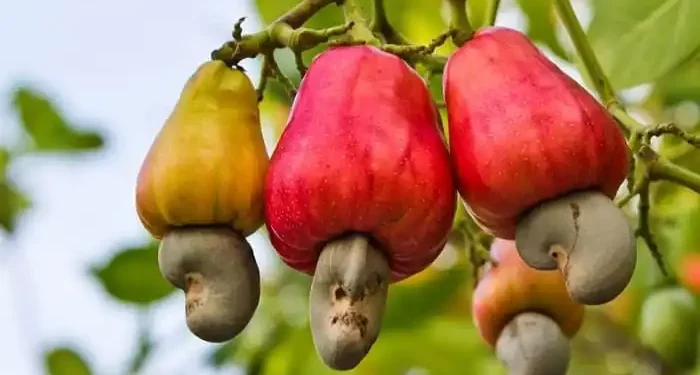Ghana’s credibility as a source of quality cashew nuts is at risk due to the poor post-harvest practices of some farmers and aggregators, warned Jerry Anim of the Directorate of Crop Services at the Ministry of Food and Agriculture.
According to the Tree Crops Development Authority (TCDA), the international market requires that cashew nuts are dried to at least 10 percent moisture content in order to meet the kernel outturn ratio (KOR). However, some farmers and aggregators are not allowing the nuts to dry to the desired standards before releasing them onto the market, which raises concerns over the quality of Ghana’s nuts.
As a result, Mr. Anim stated that Ghana has lost its credibility in providing quality cashew nuts on the world market over the past two years. “Some aggregators follow cashew farmers to their farms and buy right after picking just to beat competitors. Since moisture level is high, respiration continues to take place – causing the nuts to grow mould before reaching their destination during exportation,” he said. Last year, cashew nuts in poor condition upon reaching their final destinations were rejected, leading other traders who had not exported their products to mix the bad nuts with healthy ones from the recent season. This resulted in a loss of trust for Ghanaian cashew and loss of buyers.
Mr. Anim condemned the practice of aggregators buying from farmers straight after harvest to beat competition and explained that regulations are being developed and presented to parliament for approval. The regulations aim to restrict aggregators from buying the nuts right after picking, and an independent quality check will be conducted before any produce leaves the country’s shores to ascertain its quality.
Foster Boateng, the deputy Chief Executive Officer of the TCDA, called on cashew farmers and processors to dry their nuts to at least 10 percent moisture content to get good market value for them and to meet the kernel outturn ratio. He explained that when cashew nuts are not dried enough and do not meet the KOR, they lose value on the market. During the first harvest season between December and January, farmers can provide aggregators with well-dried cashew nuts, which made them pay GH¢13 instead of the estimated farm price of GH¢8.50.
However, the quality of cashew nuts drops during the second season, which is between March and April during the rainy season. The competition between cashew farmers in Ghana and Cote d’Ivoire during the second season is another factor influencing farmers to supply moist cashew to the market. “During this period, farmers are not able to dry crops properly due to rain, and also it is during the second season that Cote d’Ivoire harvests their cashew. In order to compete with them, farmers do not wait for their produce to dry,” Mr. Boateng said.
Cote d’Ivoire has a much lower minimum farm gate price for their cashew nuts than Ghana and also produces in larger volumes, resulting in aggregators choosing to patronise Cote d’Ivoire instead of Ghana during this period. The TCDA is engaging all players in the cashew value chain to establish a price formula for both farmers and aggregators and educate them on the consequences of their actions. The meeting of stakeholders will not only be about renegotiations but also to educate them on the consequences of their actions.
Source: norvanreports

